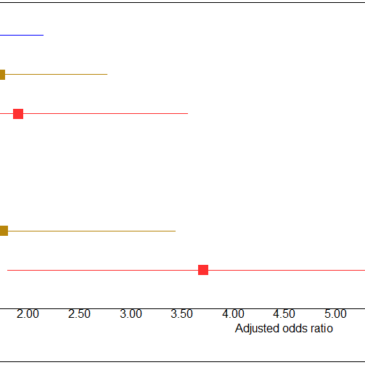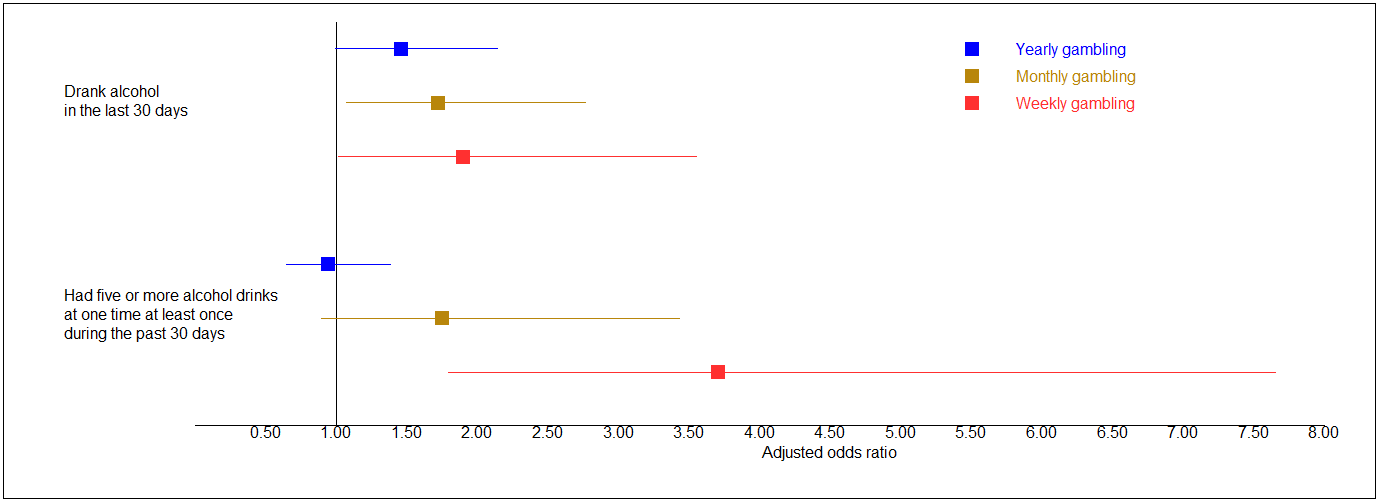Editor’s note: As part of our broader effort to streamline our science reviews, we have changed the way we provide citations to academic papers. Rather than presenting a list of references at the end of science reviews, we now link directly to published abstracts of these papers within the main text. Readers can click on these links to learn more details about the papers.
Lately, more people across the globe have been getting more opportunities to gamble. It is important to understand how potential risk factors such as drinking alcohol affect gambling and gambling problems. This week, as part of our Special Series on Gambling and Addiction during Problem Gambling Awareness Month, we explore a study by Okunna and her colleagues that examined the relationship between drinking alcohol and gambling among recreational gamblers in Massachusetts.
What was the research question?
Do people who drink alcohol or binge drink gamble more frequently than those who do not?
What did the researchers do?
Nene Okunna and her colleagues conducted secondary data analysis using data from the 2013 Massachusetts Behavioral Risk Factor Surveillance System (BRFSS). The final sample included 3,312 Massachusetts residents who were randomly selected to complete the gambling module. Participants reported how frequently they gambled on the lottery, casino games, and any other types of gambling. They also reported their past 30 day alcohol consumption including whether or not they binge drank (4+ drinks for women, 5+ drinks for men). The study authors compared participants who drank alcohol or binge drank in the past 30 days to those who did not on their gambling frequency: weekly; in the past month; or in the past year.
What did they find?
As Figure 1 shows, participants who reported drinking any alcohol in the past 30 days were 1.7 times more likely to report monthly gambling and 1.9 times more likely to report weekly gambling, compared to non-drinkers. Participants who reported binge drinking in the past month were 3.7 times more likely to report weekly gambling compared to non-binge drinkers.
Why do these findings matter?
These findings indicate a relationship between alcohol consumption and gambling involvement among a representative sample of Massachusetts residents. Massachusetts is currently undergoing gambling expansion, with a slots parlor opening last summer and 2 or 3 casinos set to open later this decade. The results suggest that people who drink regularly might be in particular need for gambling disorder screening, prevention, and treatment efforts.
Every study has limitations. What about this one?
The study sample includes only Massachusetts residents. This potentially limits generalizability to other regions. The study’s cross-sectional design means that although a relationship has been identified, causality remains to be determined.
Figure 1. Odds ratios and 95% confidence intervals for frequency of gambling in the past year among those who drank or binge drank in the past 30 days (modified from Okunna et al., 2016).
Note: Statistically significant (p < 0.05) multivariate analysis controlling for gender, age, education, region, health status, tobacco use, risky driving, obesity, and mental health status.
For more information:
For more information on gambling screens visit the BBGS (including more than 20 different language translations).
We also have self-help tools for drinking and gambling. Our First Step to Change toolkit is also available in Spanish, Chinese, Cambodian, and Vietnamese.
— John H. Kleschinsky
What do you think? Please use the comment link below to provide feedback on this article.





